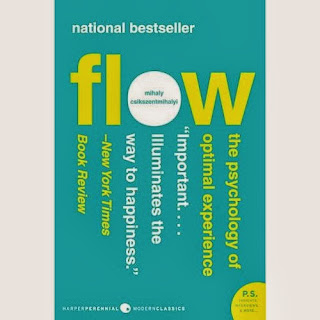Recently my daughter posted the following communication between her and one of her daughter's on Facebook.
Stella: Mom can I stay home today?
Mom: Why?
Stella: It's too crowded
Mom: Too many kids in your class?
Stella: Yes AND they ALL like me
Mom: Okay...and....
Stella: They all want to play with me and sometimes I just want to play by myself!
Her extroverted mother is trying hard to understand!
Introverts and Extroverts
In was interesting to view the comments of others in relation to my daughter's post. Some folks related to my daughter; others related to Stella. I had to laugh at some of their remarks. They included, "I can completely relate;" and "That's me on most days too."
This made me wonder about the need for supportive relationships, as emphasized in The Blue Zones, and people who find being with others somewhat draining. What about them? How do they go about relieving stress and anxiety in their lives?
Perhaps first it's important to note that while all people need supportive relationships, not everyone needs the same number of relationships. Some, like my daughter and Main Man, are energized by being with people. Others, like sweet Stella (and me), need space and time by themselves. If we don't get it, our anxiety can ratchet through the roof causing us to be grumpy and out-of-sorts. I call it "unfit for human interaction."
Flow and Stress Relief
But is it just time alone that renews one's spirit? Probably not. I can do a lot of clothes folding and closet cleaning by myself and not feel very renewed. Sitting for hours alone in front of a computer usually isn't very reviving either. It's what I do with that alone time, that contributes to some of the best kind of stress relief--something known as "flow."
According to Mihaly Csikszentmihalyi, "flow" is a purpose-driven state of mind that is both enjoyable and renewing. He identifies the following six factors:
1) Intense and focused concentration in the present moment--like that which might be experienced by a musician, rock climber or surgeon.
2) The merging of action and awareness, i.e., a heightened state of awareness in which you are only aware of the next note, next step or next action.
3) A loss of reflective self-consciousness, i.e., being so engrossed in what you are doing that you no longer think or care about what others might say or think about you.
4) A sense of personal control or agency over the situation or activity, i.e., even though the situation is demanding and engrossing, you know what to do and how to take the next step.
5) You lose track of time, i.e., you may work for hours, but feel like you've been at it for only a brief period.
6) Just doing what you are doing is satisfying and/or rewarding in and of itself, i.e., you are not necessarily engaged in this activity to gain kind of reward or compensation. You do it because you love it, you are curious about your world.
I suspect that Stella, a middle child with two older sisters and one younger, enjoys the prospect of sometimes coloring by herself, arranging the dolls in a way she would like, and reading books without the need to share them with others. I'm guessing that although Stella, who knows how to share and can be a very enjoyable companion (thus all the friends), is a happier, more settled child when she has time alone to do just as she pleases.
Do you identify with Stella? I know I do. In order to be "fit for human interaction," I find I need to make time for flow-like activities. A couple of weeks ago I wrote about my husband's "flow" while making applesauce. Next time I'll devote more space to describing the seven ideal "flow conditions."
Until then, I think I'll go and enjoy some time on my own.
Dr. Jennifer Baker

.jpg)








No comments:
Post a Comment